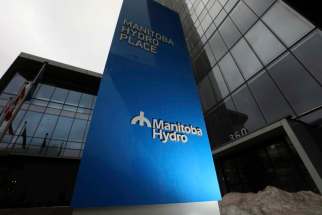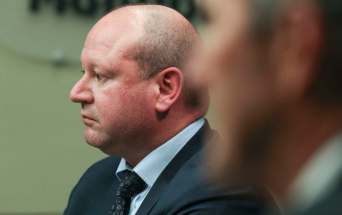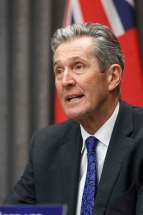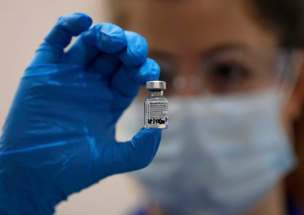Concerns rise alongside Manitoba First Nations pandemic caseload
Read this article for free:
or
Already have an account? Log in here »
To continue reading, please subscribe:
Monthly Digital Subscription
$0 for the first 4 weeks*
- Enjoy unlimited reading on winnipegfreepress.com
- Read the E-Edition, our digital replica newspaper
- Access News Break, our award-winning app
- Play interactive puzzles
*No charge for 4 weeks then price increases to the regular rate of $19.00 plus GST every four weeks. Offer available to new and qualified returning subscribers only. Cancel any time.
Monthly Digital Subscription
$4.75/week*
- Enjoy unlimited reading on winnipegfreepress.com
- Read the E-Edition, our digital replica newspaper
- Access News Break, our award-winning app
- Play interactive puzzles
*Billed as $19 plus GST every four weeks. Cancel any time.
To continue reading, please subscribe:
Add Free Press access to your Brandon Sun subscription for only an additional
$1 for the first 4 weeks*
*Your next subscription payment will increase by $1.00 and you will be charged $16.99 plus GST for four weeks. After four weeks, your payment will increase to $23.99 plus GST every four weeks.
Read unlimited articles for free today:
or
Already have an account? Log in here »
Hey there, time traveller!
This article was published 11/12/2020 (1827 days ago), so information in it may no longer be current.
COVID-19 has taken a staggering toll on Manitoba First Nations people, who now represent more than one in 10 pandemic-linked deaths and half of the province’s virus-related hospitalizations.
Manitoba’s leaders say they plan to reinforce messaging and work with both local leadership and federal partners to support First Nations communities as they work to hunker down and weather the second wave of the novel coronavirus.
In October, no COVID-19 deaths were recorded amongst Manitoba’s First Nations population.
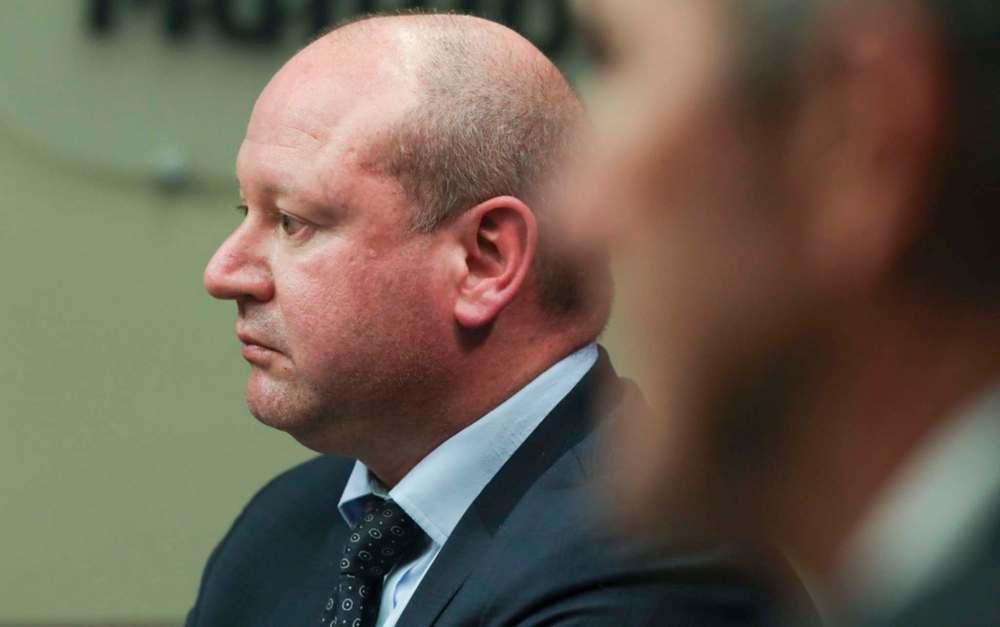
During a media briefing Friday, chief provincial public health officer Dr. Brent Roussin said Indigenous people now make up 10 per cent of Manitoba’s deaths and more than 30 per cent of new cases (up from 10 per cent in October).
New cases have surged in the Northern Health Region, where 136 infections were announced Friday. Roussin said more than 100 of those were lab-confirmed positive tests from the outbreak in Shamattawa First Nation.
“We knew right from the beginning that there were going to be very susceptible parts of our population that we would need to do whatever we could to protect,” Roussin said. “We know for a variety of reasons that First Nations communities and Indigenous people could see a disproportionate effect for this.”
“We know for a variety of reasons that First Nations communities and Indigenous people could see a disproportionate effect for this.”
– Dr. Brent Roussin
Manitoba NDP Leader Wab Kinew said he’s “very concerned” about the rising case counts.
“Unfortunately, what we’ve seen throughout the pandemic is, anytime we have a weakness in our collective defence that’s where the virus enters,” he said. “And because we’ve ignored not just the health needs but also the social side — the housing, the access to clean drinking water for so many First Nations and northern people for so long — that is, unfortunately, the opening that the virus is taking advantage of right now.”
Speaking directly to Indigenous people as a First Nations father and someone who started life on a reserve, Kinew said it is important for everyone to follow public health guidelines on staying home, maintain social distancing, and to self-isolate if testing positive for COVID-19.
Melanie MacKinnon of Ongomiizwin Health Services, one of the groups leading the Manitoba First Nations Pandemic Response Co-ordination Team, stressed gatherings and visitation between homes on First Nations should be cut out entirely.
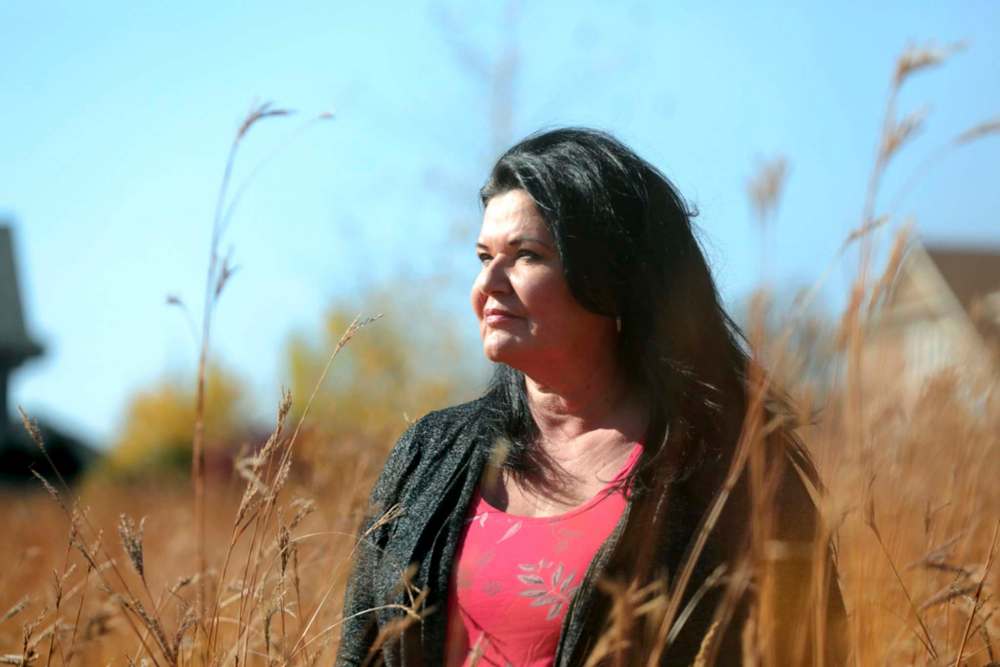
“There is to be no visiting anyone right now. There are still gatherings, there are still significantly large funerals happening. This cannot be happening,” said MacKinnon, speaking at an Assembly of Manitoba Chiefs meeting Friday.
“We do not have the health human resources locally in your nursing stations or health centres. We are thin on the ground with rapid response teams.”
Over the weekend, access to alternative isolation had to be denied because such spaces were full, MacKinnon said.
Asked how Manitoba was working to enhance messaging for communities with less access to public health updates, Roussin touted the work of provincial bodies and local leadership in working to manage the pandemic response.
“… because we’ve ignored not just the health needs but also the social side– the housing, the access to clean drinking water for so many First Nations and northern people for so long – that is, unfortunately, the opening that the virus is taking advantage of right now.”
– NDP leader Wab Kinew
“There was a lot of collaboration, a lot of preparations with First Nations leadership, before even the first wave came and all throughout this,” he said.
“Of course, there’s also the disproportionate effects in the (Winnipeg) downtown (and) Point Douglas area, which also disproportionately affects urban Indigenous people, so there are various levels of work being done there, engagement with community partners.”
Roussin noted a new COVID-19 swab site has been opened at the Garrick theatre (330 Garry St.) to offer accessible walk-in testing downtown.
In remote communities, Roussin said, military response is “certainly possible” for First Nations struggling to manage rising case loads. The province is also working to establish more alternative isolation accommodations for those needing a safe place to quarantine both in Winnipeg and the North.
“We work with our federal partners, First Nation-Inuit health branch and we have a lot of resources on the ground through the rapid response teams,” Roussin said. “We’ll continue to work with all the partners, and I think the First Nation leaders have continued to be fantastic leaders during this pandemic.”
MacKinnon, however, prompted those leaders to hammer down the fundamentals now and not wait on outside aid, especially as the holiday season puts a strain on health resources.
“The idea of a lot of people, or additional supports, or the health system, or even the military coming in to help us — and we’re not changing our behaviour — needs to really be reconsidered, because that’s not going to be our reality,” she said.
“Please let’s just slow down and settle down, right now.”
— with files from Larry Kusch
julia-simone.rutgers@freepress.mb.ca
Twitter: @jsrutgers

Julia-Simone Rutgers is a climate reporter with a focus on environmental issues in Manitoba. Her position is part of a three-year partnership between the Winnipeg Free Press and The Narwhal, funded by the Winnipeg Foundation.
Our newsroom depends on a growing audience of readers to power our journalism. If you are not a paid reader, please consider becoming a subscriber.
Our newsroom depends on its audience of readers to power our journalism. Thank you for your support.


